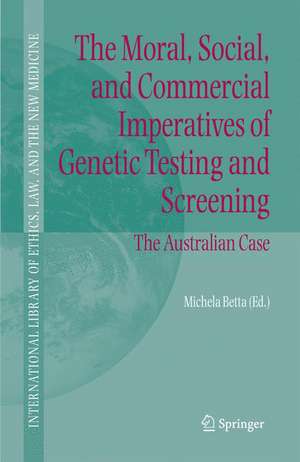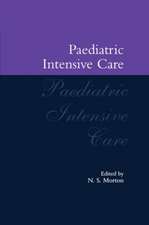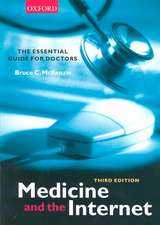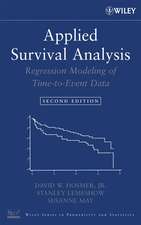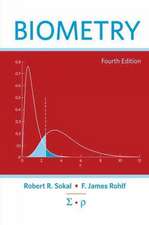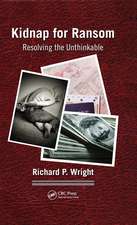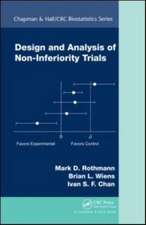The Moral, Social, and Commercial Imperatives of Genetic Testing and Screening: The Australian Case: International Library of Ethics, Law, and the New Medicine, cartea 30
Editat de Michela Bettaen Limba Engleză Hardback – 14 iul 2006
| Toate formatele și edițiile | Preț | Express |
|---|---|---|
| Paperback (1) | 1093.88 lei 6-8 săpt. | |
| SPRINGER NETHERLANDS – 22 noi 2010 | 1093.88 lei 6-8 săpt. | |
| Hardback (1) | 1101.21 lei 6-8 săpt. | |
| SPRINGER NETHERLANDS – 14 iul 2006 | 1101.21 lei 6-8 săpt. |
Din seria International Library of Ethics, Law, and the New Medicine
- 5%
 Preț: 347.29 lei
Preț: 347.29 lei -
 Preț: 397.25 lei
Preț: 397.25 lei - 15%
 Preț: 635.31 lei
Preț: 635.31 lei - 18%
 Preț: 942.76 lei
Preț: 942.76 lei - 5%
 Preț: 718.65 lei
Preț: 718.65 lei - 15%
 Preț: 634.68 lei
Preț: 634.68 lei - 15%
 Preț: 637.78 lei
Preț: 637.78 lei -
 Preț: 380.07 lei
Preț: 380.07 lei - 18%
 Preț: 959.98 lei
Preț: 959.98 lei - 15%
 Preț: 641.20 lei
Preț: 641.20 lei - 18%
 Preț: 944.19 lei
Preț: 944.19 lei - 15%
 Preț: 636.80 lei
Preț: 636.80 lei - 15%
 Preț: 643.00 lei
Preț: 643.00 lei - 18%
 Preț: 952.89 lei
Preț: 952.89 lei - 15%
 Preț: 643.48 lei
Preț: 643.48 lei - 18%
 Preț: 954.45 lei
Preț: 954.45 lei - 5%
 Preț: 1095.73 lei
Preț: 1095.73 lei - 15%
 Preț: 645.79 lei
Preț: 645.79 lei - 18%
 Preț: 1111.22 lei
Preț: 1111.22 lei - 15%
 Preț: 643.84 lei
Preț: 643.84 lei - 18%
 Preț: 1227.67 lei
Preț: 1227.67 lei - 18%
 Preț: 953.65 lei
Preț: 953.65 lei - 15%
 Preț: 638.57 lei
Preț: 638.57 lei
Preț: 1101.21 lei
Preț vechi: 1159.17 lei
-5% Nou
Puncte Express: 1652
Preț estimativ în valută:
210.72€ • 220.46$ • 175.04£
210.72€ • 220.46$ • 175.04£
Carte tipărită la comandă
Livrare economică 03-17 aprilie
Preluare comenzi: 021 569.72.76
Specificații
ISBN-13: 9781402046186
ISBN-10: 1402046189
Pagini: 288
Ilustrații: XVI, 270 p.
Dimensiuni: 210 x 297 x 19 mm
Greutate: 0.59 kg
Ediția:2006
Editura: SPRINGER NETHERLANDS
Colecția Springer
Seria International Library of Ethics, Law, and the New Medicine
Locul publicării:Dordrecht, Netherlands
ISBN-10: 1402046189
Pagini: 288
Ilustrații: XVI, 270 p.
Dimensiuni: 210 x 297 x 19 mm
Greutate: 0.59 kg
Ediția:2006
Editura: SPRINGER NETHERLANDS
Colecția Springer
Seria International Library of Ethics, Law, and the New Medicine
Locul publicării:Dordrecht, Netherlands
Public țintă
Professional/practitionerCuprins
Positioning.- From Destiny to Freedom? On Human Nature and Liberal Eugenics in the Age of Genetic Manipulation.- Diagnostic Knowledge in the Genetic Economy and Commerce.- The Australian Case.- Body Talk: Genetic Screening as a Device of Crime Regulation.- Genetic Testing and Human Genetic Databases.- The Imperative of the "New Genetics": Challenges for Ethics, Law, and Social Policy.- Insurance and Genetics: Regulating a Private Market in the Public Interest.- The Social Imperative for Community Genetic Screening: An Australian Perspective.- Genetically Transformed Healthcare: Healthy Children and Parents.- The Australian Law Reform Inquiry into Genetic Commission Testing - A Worker's Perspective.- Genetic Information and the Australian Labour Movement.- Protecting the Vulnerable: Genetic Testing and Screening for Parentage, Immigration, and Aboriginality.- Essentially Whose? Genetic Testing and the Ownership of Genetic Information.- Future Perspective.- Self-Knowledge and Self-Care in the Age of Genetic Manipulation.- Conclusion.- Conclusion.
Recenzii
From the reviews:
"Betta offers a collection of essays concerned with the ‘new genetics,’ that is, the ‘convergence of knowledge fields such as biology, computer science, chemistry, physics, and engineering’. … The opening and closing chapters of the book present the most interesting material for those interested in applied ethics. … if one is looking for a list of the imperative looming on the genetic horizon, then this book makes an important contribution." (Jeremy Green, Metapsychology Online Reviews, Vol. 11 (51), 2007)
"Betta offers a collection of essays concerned with the ‘new genetics,’ that is, the ‘convergence of knowledge fields such as biology, computer science, chemistry, physics, and engineering’. … The opening and closing chapters of the book present the most interesting material for those interested in applied ethics. … if one is looking for a list of the imperative looming on the genetic horizon, then this book makes an important contribution." (Jeremy Green, Metapsychology Online Reviews, Vol. 11 (51), 2007)
Textul de pe ultima copertă
This is a dynamic book that successfully combines global and local thinking with regard to an emerging technology that will contribute to the expansion of proteomics and pharmacogenomics, the science of tailored healthcare and treatments. Genetic testing and screening will change the way people understand health, diagnostic knowledge, illness but also crime, databases and private information, paternity, and self-knowledge. In addition to giving individuals the opportunity to think differently about their well-being, it installs a new taxonomy in terms of illness, because its probabilistic effects will introduce a new narrative in the health discourse of 21st century society. While in the past people could be classified as being healthy or sick, now, through genetic testing and screening, adults can be classified as being healthy, predisposed to an illness, probably at risk, at risk, or carriers of certain risks. The effects of this taxonomy do not remain confined to the individual who is tested but extends to an entire family, as genetic knowledge is family knowledge. But the technology of genetic testing and screening installs a second dramatic register in the prenatal phase when cells and embryos are tested and subsequently altered in order to hit targets of perfection. However, this technology can also be seen as a strategy for the acquisition of new knowledge about oneself, as it instigates a different attitude towards ourselves in a scenario in which the notion of life as a singular noun is seriously questioned by cultural practices that make it necessary to speak of forms of life. The complexity of the Self resulting from this epistemological shift evoke the ancient Greco-roman practices of the care of the self leading to self-knowledge. Genetic testing and screening could therefore be understood as a form of self-quest, and attempt to discover what we are beyond our wishes and desires - beyond what we would like to be.
Caracteristici
A successful combination of theory and social practice Insightful and informative Describing different fields of knowledge Presenting contrasting viewpoints Offering a global and local perspective
